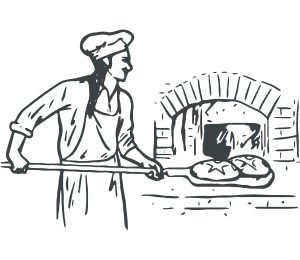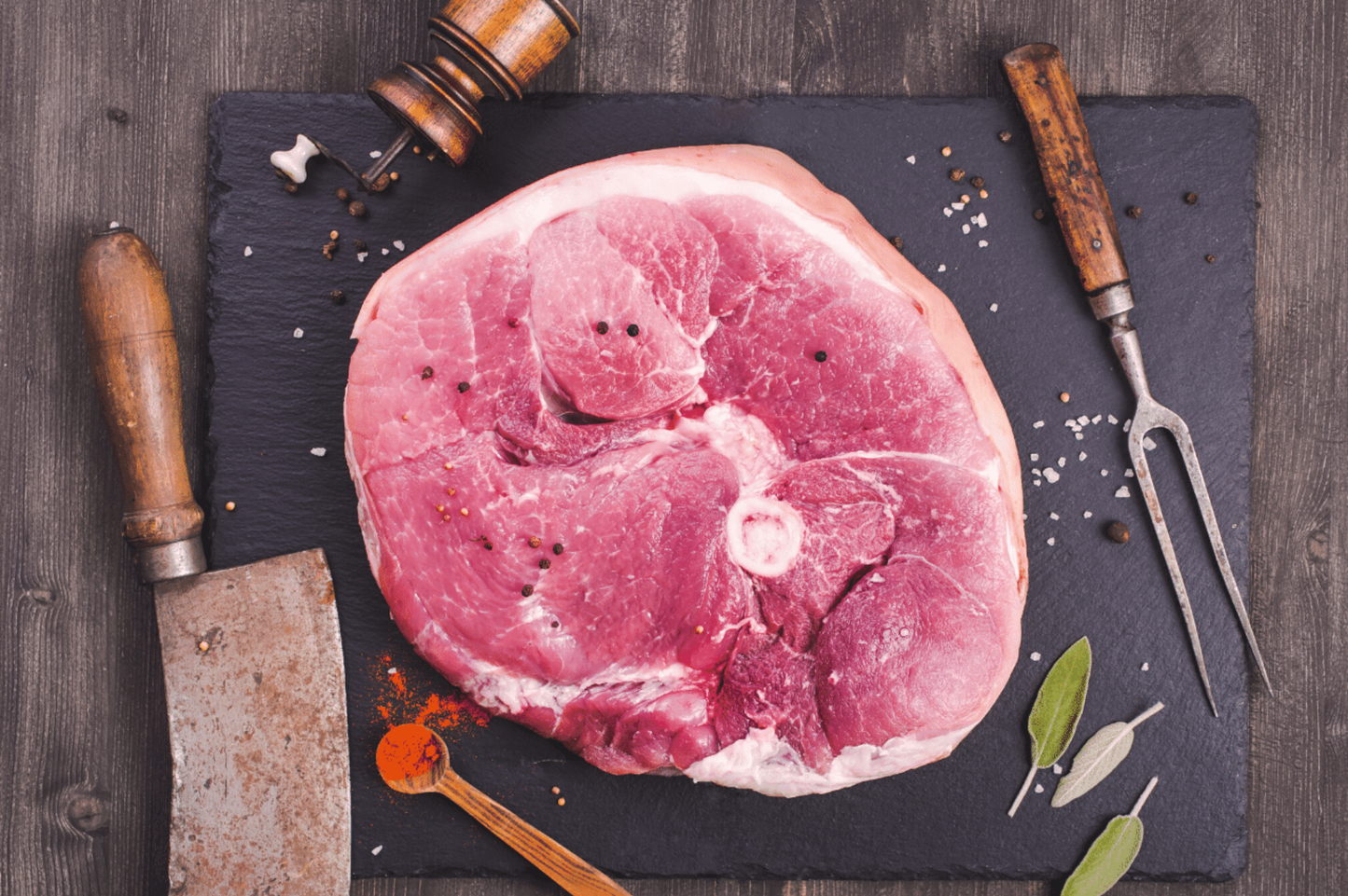
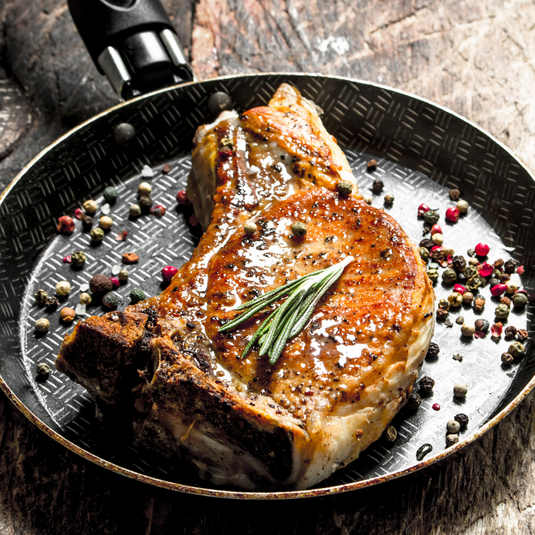
Low in PUFAs, Custom-Feed
Modern pork contains significantly higher levels of PUFAs than it did in the past, with conventional pork now containing the same amount of PUFAs as canola oil—definitely not ideal! This shift is largely driven by changes in the pig’s diet, specifically the mass production of corn, soy, and other PUFA-rich ingredients used in conventional feed. While pasture-raised pigs may have access to more natural grazing, they still require supplemental feed, which is often rich in PUFAs. As a result, even pasture-raised pork can still have elevated levels of omega-6 fatty acids, as the pigs’ diet directly influences the fat composition of their meat.
At Nourish, we’ve taken a different approach. We’ve developed a custom-made low-PUFA, nutrient-dense feed for our pigs, ensuring their meat is rich in metabolism-supporting fats and lower in inflammatory PUFAs. Our focus on better feed practices leads to healthier pigs and better food for you, with lab testing to back it up. Simply put, the better we feed our animals, the better the food you get.
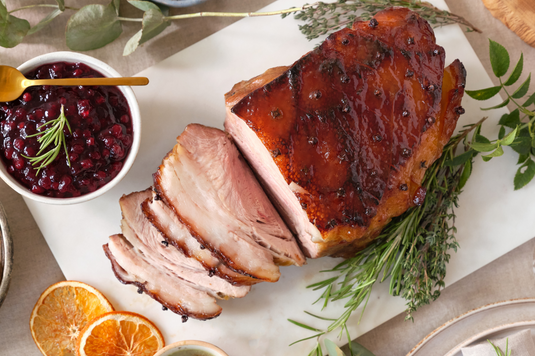
Mobile Pasture-Raised for Optimal Nutrition
Pigs raised on pasture enjoy a diverse, nutrient-rich diet, which includes not only supplemental feed but also fresh grasses, plants, and insects. This variety enhances their nutrient intake, which is then passed on to you through the meat you consume. In contrast, animals confined to buildings or cages are limited to their supplemental feed, leading to a less varied nutrient profile and, ultimately, a less nutrient-dense product.
At Nourish, we take it a step further with mobile pasture-raised practices, where our pigs are moved to a fresh patch of grass weekly. This ensures they have continuous access to fresh grasses and insects, providing them with a more varied and nutrient-dense diet. Unlike the generic “pasture-raised” label—which often lacks regulation—our mobile system prevents land degradation, preserves vegetation, and avoids the soil issues caused by prolonged animal presence. Regularly rotating the pigs allows the land to recover, supporting pig health, environmental sustainability, and, ultimately, your health.
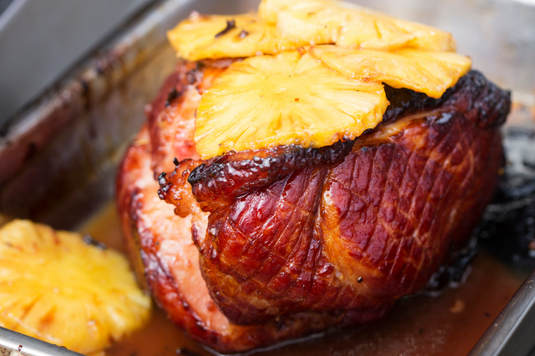
Healthier Pigs, Free of Pharmaceuticals
Healthy animals don’t need pharmaceutical crutches. Our pigs are raised in optimal conditions—mobile pasture-raised with daily access to fresh grass, clean air, and space to express their natural instincts. Unlike confined pigs that require constant antibiotic interventions due to poor living conditions, our pigs aren’t trapped in their own waste or exposed to airborne toxins. Instead, they breathe fresh air, forage freely, and benefit from nutrient-rich grasses that support their gut and immune health. While pigs can’t survive on grass alone, regular access to fresh pasture provides key nutrients and fiber, promoting overall well-being.
This natural lifestyle eliminates the need for routine antibiotics, vaccines (including mRNA vaccines), hormones, and dewormers. Industrial pigs, crammed into barns or cages, rely on daily antibiotics in their water and an aggressive vaccine schedule just to survive. In contrast, our pasture-raised pigs exercise more, experience less stress, and develop stronger immune systems, resulting in healthier meat with superior nutrient density. By prioritizing regenerative farming, we raise resilient pigs that rarely get sick, avoiding the pharmaceutical dependence of conventional hog production.



